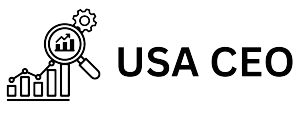Written by a team of researchers at Harvard Business School, in conjunction with the Wharton School of the University of Pennsylvania, the MIT Sloan School of Management, and the Boston Consulting Group, the study delves into the performance implications of AI in complex and knowledge-intensive tasks. Office Image created with ClipDrop THE STUDY The study was conducted with 758 consultants from the Boston Consulting Group and examined how AI, specifically GPT-4, affects productivity and work quality. The researchers established a performance baseline for the consultants and then randomly assigned them to one of three conditions: no access to AI, access to GPT-4 AI, or access to GPT-4 AI with an overview of engineering. indications (Prompts).
AI in the Office Imagen Bing Image Creator
The study focused on a set of 18 realistic consulting tasks and found that consultants using AI were significantly more productive, completing 12.2% more tasks on average and 25.1% faster. The quality of their work also improved by more than 40% compared to a control group. The study introduces Kuwait Phone Number Data the concept of an “uneven technological frontier,” where AI excels at some tasks but falls short in others. For tasks within the AI capability frontier, consultants across the skill distribution benefited significantly from the AI extension. However, for tasks outside this boundary, consultants using AI were 19% less likely to produce correct solutions. Interestingly, the study identified two distinctive patterns of successful AI use: “Centaurs” and “Cyborgs.”
The Centaurs divide and delegate tasks
Between themselves and the AI, while the Cyborgs fully integrated their workflow with the AI, continually interacting with the technology. The study is revolutionary in its empirical approach Ecuador Phone Number List to understanding the impact of AI at work. However, it raises questions about the ethical implications of scaling up AI, especially as it relates to job displacement. Furthermore, the study is limited to the consulting industry and may not be generalizable to other sectors. As AI continues to make its way into various aspects of our lives, understanding its impact on work is crucial. This study offers valuable insights, but also leaves room for further exploration. Especially in the context of ethical considerations and broader applicability.

